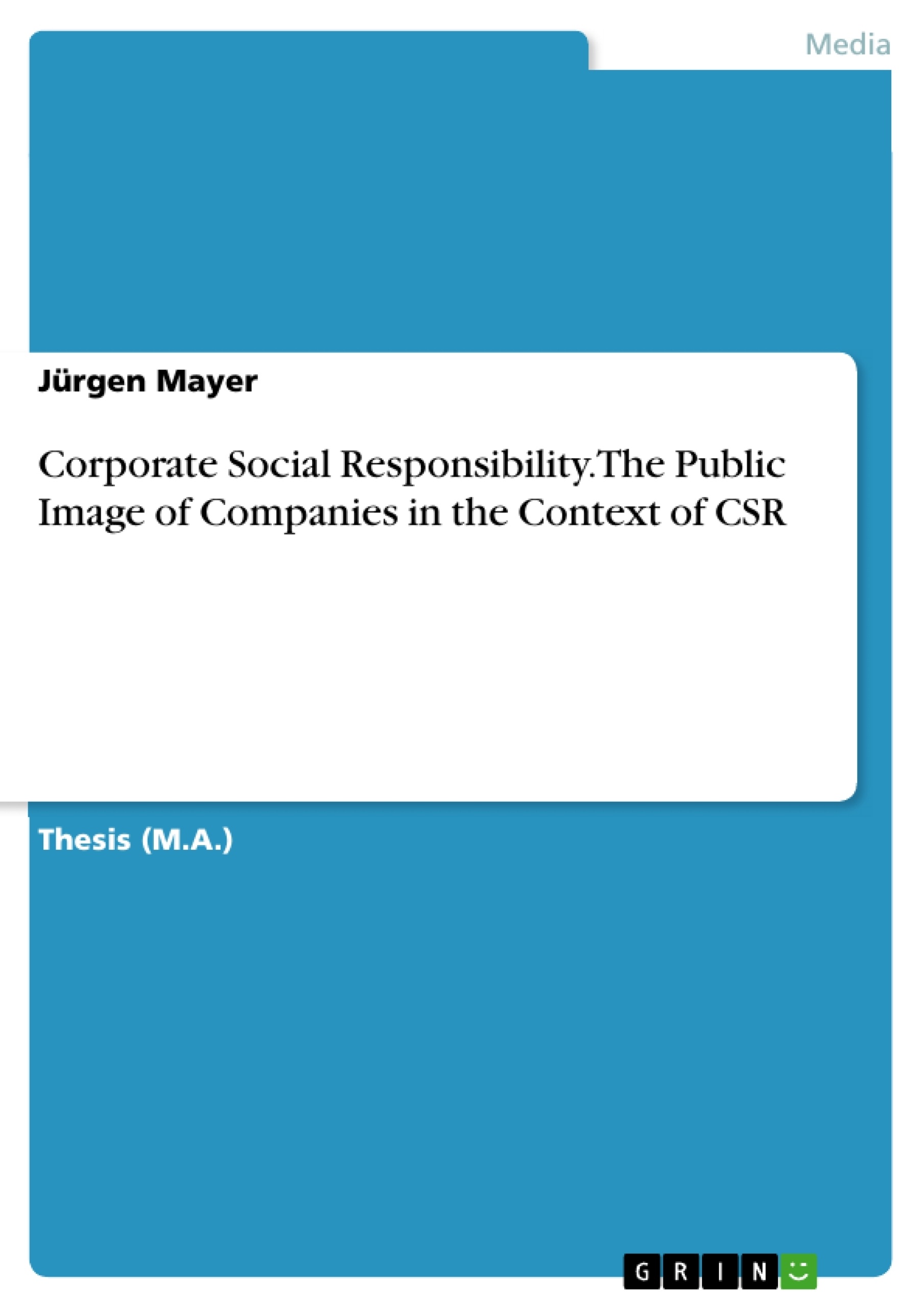Corporate responsibility towards society has played an important role for quite some time and will continue to gain in importance. The master thesis "Corporate Social Responsibility - Der Öffentlichkeitsauftritt im Kontext von CSR am Beispiel ausgewählter Unternehmen in Österreich" (Corporate Social Responsibility - Public Relations in the Context of CSR in the Example of Selected Companies in Austria) deals, as can be seen from the title, with the idea of CSR and sheds light on the public relations of four companies based in Austria (two national, two international).
In the first part of the thesis, the topic is dealt with in theory. At the beginning, the concept of CSR is defined and a distinction is made between it and similar, related concepts. Subsequently, the three pillars of CSR are discussed and the relationship to stakeholders is established. Due to the pressure from these stakeholders, a large corporation can hardly afford to operate without social commitment nowadays. In addition, CSR represents a win-win situation for both sides. Furthermore, in the course of the theoretical part, the development of CSR, both worldwide, Europe-wide and in this country, is examined in more detail and some organizations dealing with the concept are presented. Special attention is also paid to CSR communication.
Here, companies are confronted with a major challenge, as trust is built up by means of intact communication and the group appears credible, which moreover has a positive effect on the corporate image. CSR should always be practiced voluntarily and for moral reasons. Finally, the empirical part of the thesis examines CSR in corporate practice. By means of an oral interview with the respective CSR experts, the corporations were analyzed.
The interviews revealed that CSR is already implemented in all companies. However, as it is an ongoing process, competencies in this regard need to be constantly expanded and companies need to act in a forward-looking manner. The aim is to establish the concept in the minds of employees, to anchor CSR even more deeply in the corporate philosophy and to give something back to the stakeholders, both internally (employees) and externally (customers, interest groups, suppliers, neighbors, etc.), in short: to shape all corporate activity responsibly and to integrate CSR into everyday corporate life wherever possible.
Table of Contents
- 1. Introduction
- 1.1. Justification and relevance of the topic
- 2. Corporate Social Responsibility
- 3. Importance of CSR
- 4. Communication of CSR
- 5. CSR in business practice
- 6. The objects of investigation
- 7. Evaluation and interpretation of the results of the investigation
- 8. Overall summary/ conclusion and outlook
Objectives and Key Themes
This master's thesis aims to investigate the public image of companies within the context of corporate social responsibility (CSR). It explores the changing role of companies in a world characterized by globalized markets, environmental concerns, and heightened social expectations. The thesis delves into the concept of CSR, its importance for businesses, and the ways in which companies communicate their CSR initiatives.
- The evolution and contemporary relevance of CSR
- The impact of CSR on company image and stakeholder perception
- Effective communication strategies for CSR initiatives
- The practical implementation of CSR principles in business operations
- The relationship between CSR and company profitability
Chapter Summaries
The introductory chapter provides a compelling rationale for the study of CSR, highlighting the increasing pressure on companies to take responsibility for their social and environmental impact. It examines the historical roots of CSR and emphasizes the growing significance of sustainability in a rapidly changing world.
The second chapter provides a comprehensive overview of the concept of CSR, defining key terms and exploring its theoretical framework. It analyzes the various stakeholders involved in CSR and the different dimensions of corporate responsibility.
Chapter three delves into the importance of CSR for companies, examining its role in enhancing brand reputation, building trust with stakeholders, and attracting investors. It explores the potential benefits of CSR for both businesses and society.
Chapter four focuses on the communication of CSR, analyzing effective strategies for conveying corporate social responsibility initiatives to various stakeholders. It examines the use of different communication channels and media platforms to promote CSR activities.
Chapter five provides insights into the practical implementation of CSR in business practice, showcasing real-world examples of companies that have successfully integrated CSR principles into their operations. It analyzes the challenges and opportunities associated with implementing CSR programs.
Chapter six delves into the objects of investigation, providing detailed descriptions of the companies and data sources used in the study.
Keywords
This master's thesis focuses on corporate social responsibility (CSR), company image, stakeholder perception, communication strategies, business ethics, sustainability, and social responsibility.
- Quote paper
- Jürgen Mayer (Author), 2011, Corporate Social Responsibility. The Public Image of Companies in the Context of CSR, Munich, GRIN Verlag, https://www.grin.com/document/1222861




